Work and Life is a radio program hosted by Stew Friedman, director of the Wharton Work/Life Integration Project, on Sirius XM’s Channel 111, Business Radio Powered by The Wharton School. Every Tuesday at 7:00 PM EST, Stew speaks with everyday people and the world’s leading experts about creating harmony among work, home, community and the private self (mind, body and spirit).
On Work and Life, Stew Friedman spoke Monique Valcour, Professor of Management at EDHEC Business School in Nice, France about crafting sustainable careers.
The following are edited excerpts of their conversation.
Stew Friedman: Tell us about your work on crafting sustainable careers.
Monique Valcour: 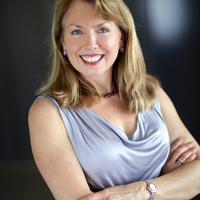 Careers and Work/Family are both long-term interests of mine. Over time I’ve combined the two. I think crafting a sustainable career must start from a foundation of deep self-awareness, understanding, for example, what am I good at, what do I really care about, how can I keep learning, how can I follow my passions and make money from it so it’s truly sustainable. This is about a work/life integration over the life course.
Careers and Work/Family are both long-term interests of mine. Over time I’ve combined the two. I think crafting a sustainable career must start from a foundation of deep self-awareness, understanding, for example, what am I good at, what do I really care about, how can I keep learning, how can I follow my passions and make money from it so it’s truly sustainable. This is about a work/life integration over the life course.
SF: Exactly,and this is what we’ve been doing here at Wharton and elsewhere with Total Leadership. Asking people to clarify what’s really important (their vision and values), who’s really important and then asking them to try small experiments to better align their actions with their values. How do you help people know themselves better, to figure out what they are good at, to clarify and articulate what they care about, so that they can continue to grow, pursuing what maters? How do you help them gain the insight and the courage?
MV: It’s the importance of being proactive; reflecting and tracking. Everybody needs to be a social scientist and study their own experience. I like to recommend an end of week review; what have you accomplished, what feedback did you get, when were you most engaged, what are your goals for next week? I suggest that people keep a file — word doc or email folder – of positive mentions or positive feedback, what was high impact. Later they can bring these little threads together to better understand themselves.
SF: This is precisely what our guest last week, Gretchen Spreitzer, was reporting on from her own research at the University of Michigan’s Ross School of Business’ Center for Positive Organizations and her new book with Jane Dutton, How to Be a Positive Leader: Small Actions, Big Impact. She reported that their study included tracking regularly and looking for patterns. This may be easy for us in academia with our students. But does it require a classroom, accountability and support? Without structure how do you maintain the discipline?
MV: Teresa Amabile, Professor at Harvard Business School, says it’s very powerful to have the experience of making progress. So, you can use goal oriented programs, note your progress, and give yourself a boost on a daily basis as you move toward your goal.
SF: Amabile’s Progress Principle is all about the benefits of identifying progress. So, how do you align your career with what you care about, what you value, what you are passionate about and make a living doing it? That’s challenging.
MV: People struggle with the feeling of being overloaded, having too much work, doing one-and-a-half jobs. With all that how can they get more training, how can they get out? So they stay the course.
SF: How do you help? What can be done?
MV: Most of your career growth and learning happens in your job, not necessarily in school. So it’s important to consider how to refocus, even slightly, at work. How can you learn about other projects in your company, how can you work with others who energize you?
SF: People and projects are both opportunities for growth. You want to look for who you can connect with. What about our earlier caller who was seeking advice for his millennial niece on job crafting?
MV: Get your head out of the hole and look around. It’s up to you. See and learn what’s going on in your company. In what direction is your company going? Too many people feel as though they’re waiting to be picked off, which is frightening and stressful; the fear of being let go. She should have lunch with others outside her immediate circle, use LinkedIn to see what others do, use a company intranet to connect and post to it; spread her own capital. Brian, another caller, felt overwhelmed and felt that he couldn’t pivot. I recommend that he try to find a mentor, a local association, to gain inspiration and to connect. He can ask others about innovative ways they scaled their businesses. He can try to identify those people, perhaps through industry events. People are open if approached by someone who wants to learn. You want your social network to reflect, not where you’ve been, but where you’re headed. Do informational interviews with others. Use LinkedIn and blogs in specific areas. Entrepreneurs and small business owners are often more effective if they are in a network that includes complimentary services/goods. It’s good to get and to receive help.
SF: So it’s useful to consider related fields and people in them. What other small changes can help get someone’s “head out of sand?”
MV: Figure out and understand what is it that you have that’s unique and valuable. Be curious so you can become more knowledgeable. Connect two disconnected networks, curate knowledge and share. Information is a classic source of power and reputation. Synthesizing is wonderful skill. Or find someone who can synthesize information and learn from them. Talk to as many people as possible, read, listen, learn. Listen to yourself, know yourself and what fuels you. Listen to your inner voice.
Monique Valcour isProfessor of Management, EDHEC Business School in Nice, France. She previously served on the faculty of the Carroll School of Management at Boston College. Her research program focuses on careers, work-life integration, human resource and performance management, and management practices that support well-being and performance. She is currently writing a book on managing sustainable careers. To learn more about her work, follow her on twitter: @moniquevalcour
Join Work and Life next Tuesday, at 7 pm on Sirius XM Channel 111. Visit Work and Life for a full schedule of future guests
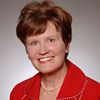 When I started childcare was my field because the question was “who’s going to take care of all the kids of the women we’re hiring? We’re not in that biz.” Now it’s morphed into something other than childcare – eldercare, the sandwich generation. We are now focused on new ways of doing work, workplace flexibility, not just childcare. Now it’s not just childcare and it’s not just about women. The power tool of the work/life field is flexibility, because the more flex-work options the business has the better they do financially.
When I started childcare was my field because the question was “who’s going to take care of all the kids of the women we’re hiring? We’re not in that biz.” Now it’s morphed into something other than childcare – eldercare, the sandwich generation. We are now focused on new ways of doing work, workplace flexibility, not just childcare. Now it’s not just childcare and it’s not just about women. The power tool of the work/life field is flexibility, because the more flex-work options the business has the better they do financially.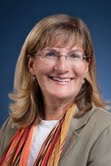 Several colleagues and I were talking about how much we loved our work and how meaningful it was, but also that it’s the type of job that is never ending; there’s always something to be done. We wondered how we could avoid burnout, but still be on the cutting edge. What we’ve found is that people thrive in their work when they feel energized, have vitality, feel alive at work, and feel as though their learning, growing, getting better.
Several colleagues and I were talking about how much we loved our work and how meaningful it was, but also that it’s the type of job that is never ending; there’s always something to be done. We wondered how we could avoid burnout, but still be on the cutting edge. What we’ve found is that people thrive in their work when they feel energized, have vitality, feel alive at work, and feel as though their learning, growing, getting better.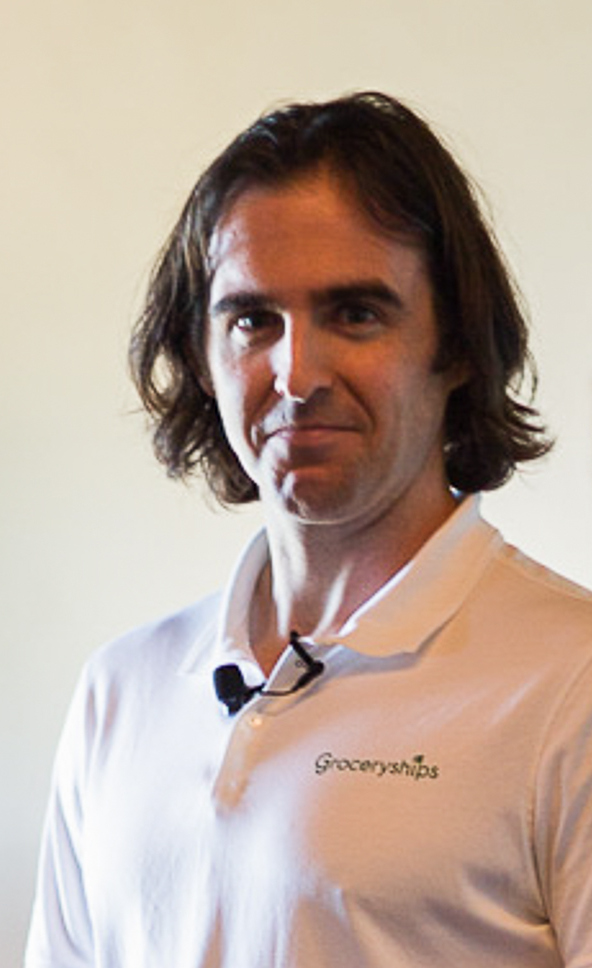 I went to Wall Street when I was 22 years old, just out of Columbia. I remember going onto the trading floor and everything I wanted in life was right there. I grew up sort of middle class. My dad read about successful businessmen in the paper every day and being successful was ingrained in me. When I walked onto the trading floor, I could tell just by looking at the clothes people wore – their haircuts, their suntans (you could tell they played golf) – that I’d never seen people as wealthy as this. And it was everything I wanted.
I went to Wall Street when I was 22 years old, just out of Columbia. I remember going onto the trading floor and everything I wanted in life was right there. I grew up sort of middle class. My dad read about successful businessmen in the paper every day and being successful was ingrained in me. When I walked onto the trading floor, I could tell just by looking at the clothes people wore – their haircuts, their suntans (you could tell they played golf) – that I’d never seen people as wealthy as this. And it was everything I wanted.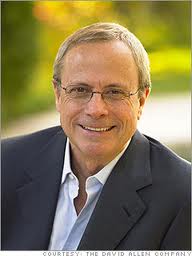 The one sentence version is both very simple and practical and pretty sublime. It is: You need to pay appropriate attention to what has your attention; otherwise, it will take more of your attention than it deserves. What has your attention? How many things are on your mind? “I need to get cat food.” “I need to find God.” “I need a career.” “I need to talk to my aunt.” “I need to answer those ten emails.” If you don’t handle those things appropriately, you are inappropriately engaged with your email, with your cat, when you are at work, or with your family. Here’s the big secret: getting things done is not about getting things done. It’s about being appropriately engaged with your life. I figured out the algorithm for being appropriately engaged. There are five steps. First, you have to capture the idea, identify what’s on your mind and record it; do something to get it out of your head. Second, decide what it means to you and what you’re going to do about it. Third, park the results of that decision somewhere you’ll see them at the right time. Fourth, look at the results of those decisions – the things you need to get done – when you need to get them done. And fifth, engage appropriately with doing those things. It isn’t rocket science, but it is something most people haven’t yet truly implemented.
The one sentence version is both very simple and practical and pretty sublime. It is: You need to pay appropriate attention to what has your attention; otherwise, it will take more of your attention than it deserves. What has your attention? How many things are on your mind? “I need to get cat food.” “I need to find God.” “I need a career.” “I need to talk to my aunt.” “I need to answer those ten emails.” If you don’t handle those things appropriately, you are inappropriately engaged with your email, with your cat, when you are at work, or with your family. Here’s the big secret: getting things done is not about getting things done. It’s about being appropriately engaged with your life. I figured out the algorithm for being appropriately engaged. There are five steps. First, you have to capture the idea, identify what’s on your mind and record it; do something to get it out of your head. Second, decide what it means to you and what you’re going to do about it. Third, park the results of that decision somewhere you’ll see them at the right time. Fourth, look at the results of those decisions – the things you need to get done – when you need to get them done. And fifth, engage appropriately with doing those things. It isn’t rocket science, but it is something most people haven’t yet truly implemented. received her MBA from The Wharton School in 2014
received her MBA from The Wharton School in 2014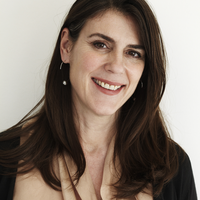 Networking is about getting to know other people, finding out what’s out there. You may not even know what kind of help you need yet. One of the great things about networks is they can give you help that you weren’t even asking for.
Networking is about getting to know other people, finding out what’s out there. You may not even know what kind of help you need yet. One of the great things about networks is they can give you help that you weren’t even asking for.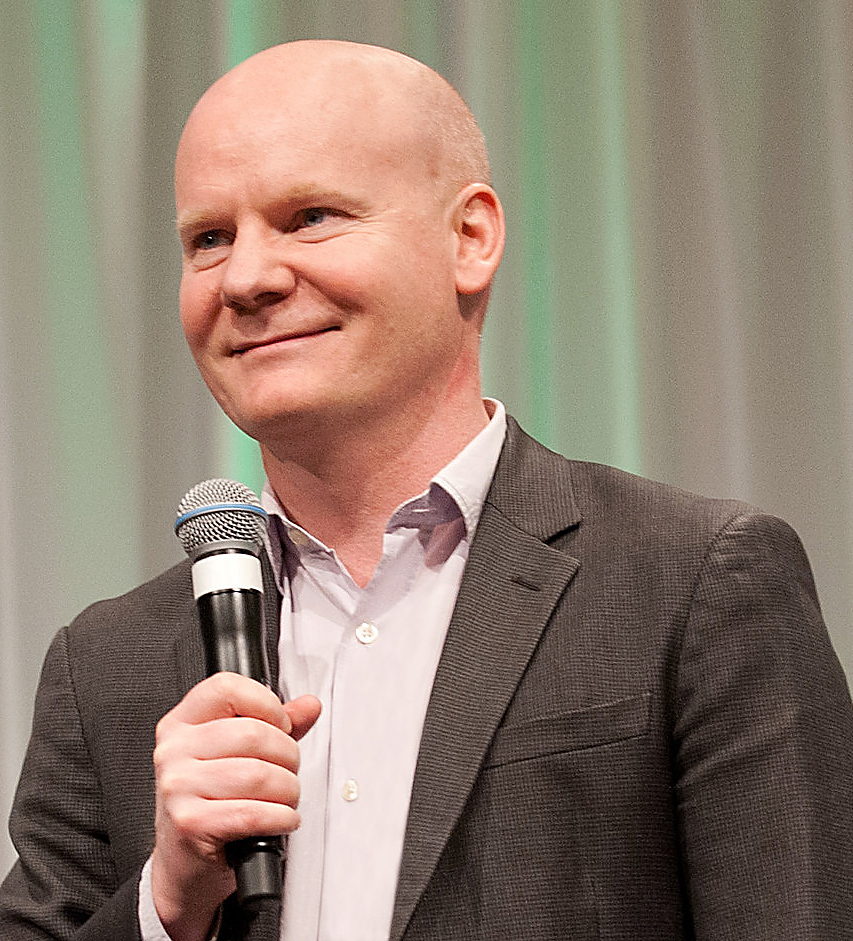 My older brother and I founded The Motley Fool in 1993. It was the result of our father’s teaching us how to invest in stocks as kids and teenagers – we were really taught that investing is a game. We weren’t taught Greek alphanumerics or obscure terminology. We weren’t even taught that much about risk. We were taught how to follow companies we loved, how to learn a little more about them, how to recognize that corporations aren’t a monolithic structure on the edge of town that you could never really know about. They’re run by every-day people around you in society who are making good or poor choices, which lead to results for shareholders and employees. We saw a human face to business at an early age, and that has had an impact on all that we’ve worked on since.
My older brother and I founded The Motley Fool in 1993. It was the result of our father’s teaching us how to invest in stocks as kids and teenagers – we were really taught that investing is a game. We weren’t taught Greek alphanumerics or obscure terminology. We weren’t even taught that much about risk. We were taught how to follow companies we loved, how to learn a little more about them, how to recognize that corporations aren’t a monolithic structure on the edge of town that you could never really know about. They’re run by every-day people around you in society who are making good or poor choices, which lead to results for shareholders and employees. We saw a human face to business at an early age, and that has had an impact on all that we’ve worked on since.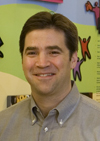 Over the years we’ve been committed to shining a light on issues facing working families, and from time to time we do studies like this. The goal with the Modern Family Index was to test where’s people’s attitudes are – in 2014 – about how employees think about these work and life issues. The survey produced some really interesting information.
Over the years we’ve been committed to shining a light on issues facing working families, and from time to time we do studies like this. The goal with the Modern Family Index was to test where’s people’s attitudes are – in 2014 – about how employees think about these work and life issues. The survey produced some really interesting information. Meaghan Casey is an MBA candidate WG’15.
Meaghan Casey is an MBA candidate WG’15.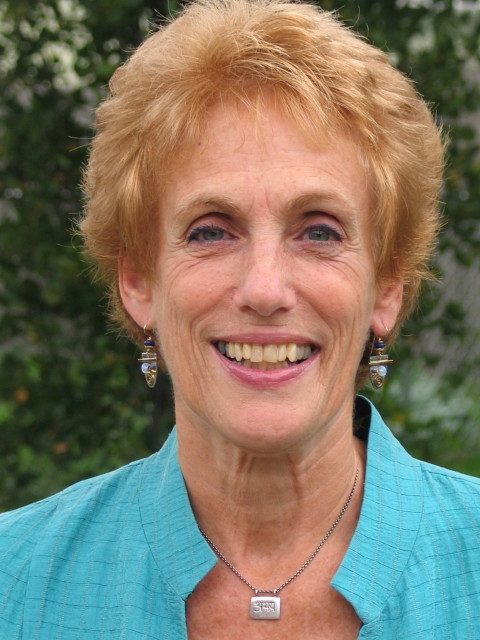 I was so glad to be able to thank him and to bring the stories of the “experts” that we brought with us. These are people who have found themselves fired because they wouldn’t let a special needs child stay home alone when the schools were closed because it was too cold or had their pay docked because they insisted on being with a kid with sickle cell anemia, or taking care of a dad who just had eye surgery. These are people who have taken that personal pain and hardship and are standing up together and trying to change policies so that what happened to them does not happen to them again and does not happen to others, either.
I was so glad to be able to thank him and to bring the stories of the “experts” that we brought with us. These are people who have found themselves fired because they wouldn’t let a special needs child stay home alone when the schools were closed because it was too cold or had their pay docked because they insisted on being with a kid with sickle cell anemia, or taking care of a dad who just had eye surgery. These are people who have taken that personal pain and hardship and are standing up together and trying to change policies so that what happened to them does not happen to them again and does not happen to others, either.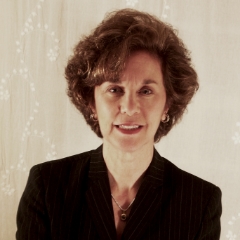 It began with my son. He developed some educational challenges. I was an HR (Human Resources) executive at the time and I found that I needed more flex options than those that were available in order to attend to my son’s needs. I had to make a choice. And no parent should have to make a choice between their professional career and their child.
It began with my son. He developed some educational challenges. I was an HR (Human Resources) executive at the time and I found that I needed more flex options than those that were available in order to attend to my son’s needs. I had to make a choice. And no parent should have to make a choice between their professional career and their child.